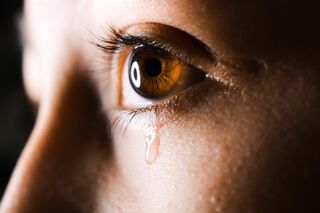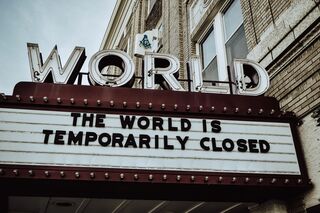Coronavirus Disease 2019
Crisis Fatigue and the COVID-19 Pandemic
The reason why you are feeling emotionally overwhelmed.
Posted August 10, 2020 Reviewed by Devon Frye
Are you depressed, anxious, or exhausted? If you are like me, the answer is a resounding yes. The COVID-19 worldwide pandemic continues to be a significant source of concern and stress. To compound matters, social media is filled with doom-and-gloom stories and videos ranging from the relentless political arguments between the extreme right and extreme left, the mask/no-mask debate, the protests for racial justice, and cries for police reform. With the unrelenting stress associated with civil unrest, economic distress, and the uncertainty of what tomorrow may bring, many are feeling deflated.
Social media, which once focused on sharing our accomplishments, family outings, babies, and puppies is now filled with conflicting information, a distrust of the media, and political falsehoods, exaggerations, and omissions. Trying to locate and share a positive story is literally and figuratively like looking for the proverbial needle in a haystack—except the haystack is five miles wide and on fire.

Negative emotions such as sadness, anger, fear, disappointment, frustration, and uncertainty have sent our collective anxiety levels as a society to what feels like the point of no return. Friends describe drinking and eating more and exercising less. Anecdotal evidence indicates that alcohol relapses, drug overdoses, and suicides are on the rise. Unchecked mental health issues are exacerbated by the uncertainty of what each new day will bring or not bring. Am I asymptomatic? Will I contract the virus? Will I die? Will I inadvertently infect others if I am asymptomatic? Will I be laid off? Will my kids be returning to school? The list of questions without answers goes on and on.
The emotional state that many are experiencing has been dubbed crisis fatigue. Yep, that is a thing. Although not a specific clinical disorder at this time, the probability of it being added to the next edition of the DSM manual is highly probable. In a recent article by Brad Russell, scientists have identified crisis fatigue as a “human response to unrelenting stress that can cause a person to feel physically numb or tired.”

Given that the last U.S. pandemic occurred in 1918 with the Spanish flu, likely well before anyone reading this was born, we are unquestionably living in unprecedented times. We do not have any prior experiences for our coping and resiliency skills to summon with memory recall, so we are essentially navigating through unchartered waters.
In the aforementioned article by Russell, researchers with Ohio State University describe crisis fatigue as “a phenomenon that occurs as the body attempts to adapt after feeling overwhelmed and stressed.” Over the years, I have published a number of articles pertaining to burnout, stress, and suicide, so I naturally gravitated toward this topic because it warrants our immediate attention simply because there is no end in sight with COVID, the racial and political injustices, and the dire state of our U.S. economy. I am worried. No, I am very worried. Not just for me and my family, but for my friends, coworkers, and even my neighbors who likely share my concerns.

From an evolutionary perspective, cortisol and adrenaline prepare the body for the infamous fight or flight syndrome. However, when our bodies remain in crisis mode—which has been five months for most of us—cortisol and adrenaline can wreak havoc on our physical and mental wellbeing because the threat remains very real and pervasive on a global scale.
Over the course of weeks or months, high cortisone levels can intensify, resulting in depression, anxiety, and insomnia, an ailment journalist Matt Simon described as Cushing syndrome, in which your body is exposed to high cortisol levels over an extended period of time leading to weight gain, high blood pressure, and even bone loss. As Americans, most can no longer travel by air, by sea, and in many cases, by land or risk self-quarantining and public shunning. Most countries will not allow us entry for fear that we will drive the number of COVID cases and subsequent deaths attributed to COVID skyrocketing within their respective countries—and honestly, who can blame them? The travel industry has taken a tremendous hit, and globalization as we know it is filled with concerns of an economic collapse of epic proportion.

In a recent Harvard Business Review article, journalists’ Schwartz and Pines emphasized that we are actually dealing with two contagions: the virus and the emotions generated from the virus. Negative emotions are just as contagious as the virus and can lead to “allostatic load,” which refers to the outcomes associated with extreme wear and tear on our bodies, minds, and emotions. Allostatic overload strikes when the demand on our internal resources exceeds our capacity to employ our coping and resiliency skills effectively and efficiently, and can lead to poor decision-making, burnout, and in extreme cases, a mental breakdown.
According to Brad Russell, Harvard Medical School researchers have identified four stages of crisis fatigue.
- Heroic Stage: Individuals band together at the onset of a crisis to determine how to survive.
- Honeymoon Stage: The reaction to initial success that occurs when individuals feel that they are “in the same boat” as others who are also taking the same steps necessary for survival
- Disillusionment Stage: Individuals begin to feel physically and emotionally exhausted. Cue the onset of the allostatic overload. Hypervigilance now turns into irritation, rage, or despair.
- Fatigue Stage: By design, the human body cannot sustain high levels of cortisol and adrenal for long periods. This results in burnout, which can cause a person to be easily triggered or completely withdrawn. It is also the stage when people are more likely to engage in risky behaviors that are detrimental to themselves or others—hence the onslaught of alcohol abuse, drug overdoses, and suicide.

When the virus pandemic subsides and life returns to “somewhat” normal, the next big challenge will be to flatten the mental health curve.




